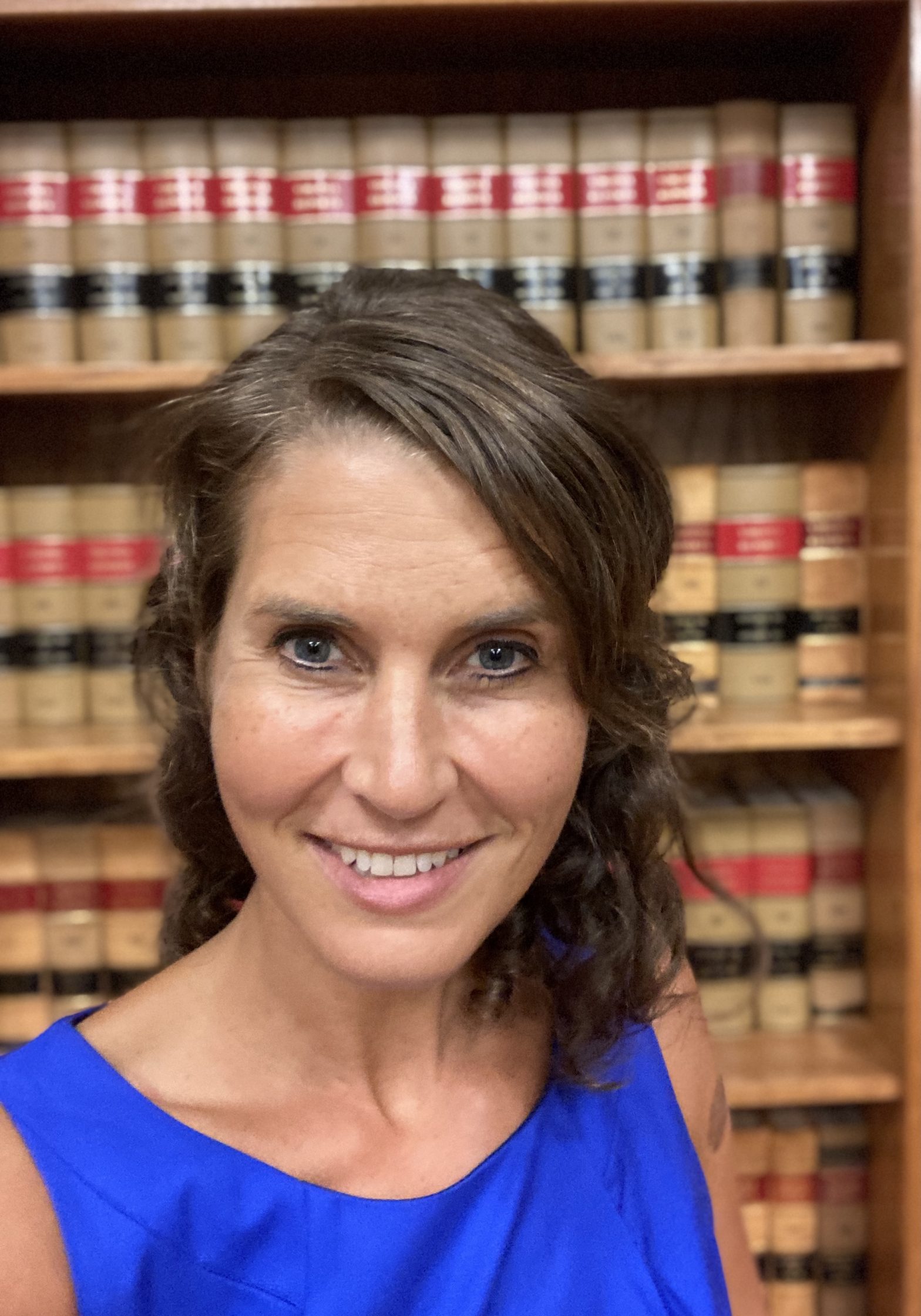This year, Virginia’s Democrat-led legislature authorized a historic expansion of the Virginia Court of Appeals. The move pushed the number of judges from 11 to 17, and diversified the court significantly: The new crop of judges includes four Black people, four women, two public defenders, and a legal aid attorney. One of those public defenders, Lisa Lorish, is also the first-ever Court of Appeals judge from Charlottesville.
Lorish, a lecturer at the UVA School of Law, started her term on the court September 1, and she’ll serve until 2029. She and her fellow judges will be tasked with managing a large new load of cases—thanks to legislation passed this year, Virginia now guarantees everyone the right to appeal all civil and criminal decisions by lower courts. The Old Dominion had been the only state in the country that didn’t guarantee that right.
“Being on the Court of Appeals is a very different role than my current work,” Lorish says. “Right now I’m an advocate. On the Court of Appeals, I’ll be a neutral, impartial judge who applies laws, instead of arguing under the law.”
Locally, Lorish is a member of the board of directors of the Fountain Fund, a nonprofit that provides low-interest loans to formerly incarcerated individuals, and has served as the president of the Charlottesville Albemarle Bar Association. At the law school, Lorish founded the Federal Criminal Sentence Reduction Clinic and has been a lecturer for the school’s criminal justice reform seminar.
“As a public defender, we don’t get to choose our clients. We represent whoever the court tells us to represent, and we make the best arguments we can, but it typically only impacts the life of that one person,” Lorish says. “[That’s] still incredibly significant and important work. [But] I’m really looking forward to the opportunity to apply and interpret the law in ways that will impact people across the commonwealth.”
On being the first judge from Charlottesville to be elected to the Court of Appeals, Lorish says she is excited to represent this part of Virginia but also emphasized the diversity of the whole slate of new judges the General Assembly named to the court.
“I’m eager to do my best to represent this part of the state, although ultimately I think the other aspects of diversity are also really important as well. Racial and ethnic diversity and diversity of background and experience is also really significant,” says Lorish. “Collectively, I think that the group that is coming on to the court has a lot of those aspects of diversity.”
Crystal Shin, an associate professor of law, general faculty, and director of the Holistic Juvenile Defense Clinic at UVA, says Lorish will be a welcome addition to the Court of Appeals due to her background and expertise in public interest law.
“It is significant to have someone with Lisa’s background and experience on the court,” says Shin. “In the past, it was much more common for openings at the trial court or the appellate court level to be filled with former prosecutors. It is important to have former public defenders and defense attorneys be appointed to the bench, too.”
Speaking about the broader changes to the court, Shin says the expansion in the court’s jurisdiction to guarantee the right to an appeal for all Virginians is long overdue.
“Previously, parties had to petition an appellate court…for the right to appeal, and the court granted appeals at its discretion,” says Shin. “Virginia was the only state in the nation without a right of appeal from civil judgments and criminal convictions.”
Sally Hudson, Charlottesville’s Democratic representative to the House of Delegates, says Republican accusations that Democrats are court-packing are unfounded. The House of Delegates voted along party lines to elect Lorish and the other judges to the Court of Appeals, while a few Republicans in the state Senate joined all of the Democratic members in electing the new judges.
“I wish that Richmond had a history of more bipartisan cooperation, [but] it is true that Republicans have run judicial appointments for a very long time in Virginia,” says Hudson. “And so the appointment of judges who share the values of the current majority is long overdue. Now that some of that balance has been restored, it would be great to see bipartisan cooperation going forward as future judges are appointed.”
Hudson says Lorish ultimately stood out among the dozens of judges considered during the selection process due to her expertise and legal background.
“Everyone I spoke to was blown away by Lisa Lorish in the vetting process,” Hudson says. “It just took a General Assembly that would even give a female public defender like her a fair hearing for her to shine in the role that she so richly deserved.”
